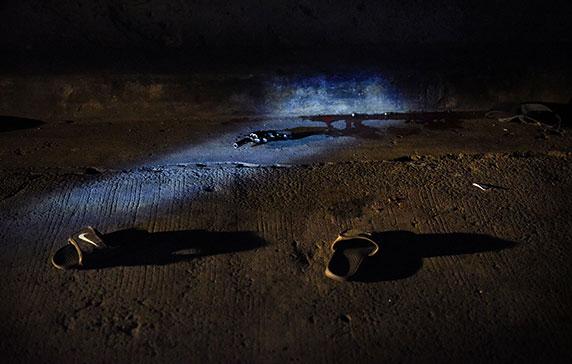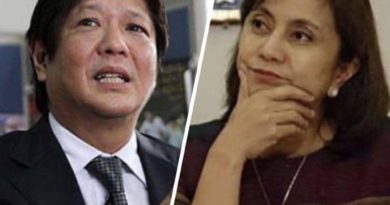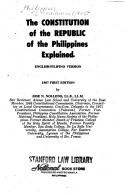OP-ED COLUMN: OPINION – ‘Pulitzer Prize-winning piece peddled fake news’ BY RIGOBERTO D. TIGLAO
“Duterte’s War”
Part of the ICC plot vs Duterte
I WAS stunned when I read one of the 10 articles of the series entitled “Duterte’s War,” published from February to December of 2017. The series won for three Reuters reporters this week the Pulitzer Prize for international reporting.
This was the series’ second article published April 18, 2017, entitled “Police describe rewards, staged crime scenes in Duterte’s drug war.” The lead writer is an old colleague and friend of mine, Manuel Mogato, with American Clare Baldwin sharing the by-line. (The other nine articles in the series were by-lined by Baldwin and a British reporter.)
Quite sadly, the Mogato-Baldwin article disseminated fake news, quite successfully, I must say, as its fallacies have been repeated by numerous news agencies around the world. Worse, the timing of its publication even indicates that it was, wittingly or unwittingly on the part of the writers, the media component of the plot to get the International Criminal Court (ICC) to prosecute President Duterte for the deaths in his anti-drug war.
For impact, the series was replete with gory photos of corpses and blood on the streets—obviously photo-shopped for more drama—that unequivocally, in-your-face shouts that Duterte’s war against drugs have resulted in horrendous murders.
The title itself of the Mogato-Baldwin article is so misleading it throws journalistic standards to the dustbin: “Killing Machine: Police describe kill rewards, staged crime scenes in Duterte’s drug war.”
MEDIA COVER FOR ICC PLOT? Top, award-winning article posted April 18, 2017. A week later, case against Duterte filed at the ICC (below).
For that extraordinary allegation, the article does not identify a single policeman to have made that description. In fact, the entire article’s sources are just two unidentified police officials, one a retired intelligence official whose expertise had been on insurgencies, not on crime. How can we be sure that these aren’t police officials loyal to the past regime, who simply want to bring Duterte down?
How can two unidentified police officials represent the “police” who “describe kill rewards, staged crime scenes in Duterte’s drug war”?
9,000 people killed
The article spews fake news at its first sentences: “Almost 9,000 people, many small-time users and dealers, have been killed since Duterte took office on June 30,” the article reported.
Yet the writers didn’t report where they got this number.
This false information actually originated from the internet-only news site Rappler’s September 2016 article that grossly misinterpreted police data to claim that people killed in the anti-drug war totaled 7,080 by that time. The Philippine National Police (PNP) and I myself in several columns* had debunked that figure conclusively.
However, anti-Duterte writers and politicians (particularly Sen. Antonio Trillanes 4th) has since used Rappler’s 7,080 figure to extrapolate fake figures on the casualties of Duterte’s war against illegal drugs. That is, “if it was 7,080 in September 2016, therefore there must be at least 20,000 killed today.”
The Mogato-Baldwin article was published April 2017, when PNP’s official figures reported at that time that the number of people killed by the police in the anti-drug war totaled only 3,100. The number rose as the anti-drug war was waged, but was only at 4,075 as of last month.
The Pulitzer-winning article claims that two thirds, or 6,000, of the 9,000 were “killed by paid assassins operating with police backing.” Where did they get this huge figure?
“From human rights monitors,” it claims. But it doesn’t even name these “human rights monitors.” There is in fact no such “human rights monitor” that has meticulously compiled police blotters to come up with a figure on how many were killed by vigilantes or paid assassins.
I won’t be surprised if the human rights monitors were communist propagandists and most likely Trillanes, who has recently been lying to the world, alleging that Duterte’s anti-drug war has killed 20,000 Filipinos.
Rationality ignored
The Reuters writers ignored that axiom of rationality – adopted by serious journalists—made popular by the renowned science writer Carl Sagan: “Extraordinary claims require extraordinary evidence.” The claim that 6,000 Filipinos involved in the anti-drug war were killed by police-backed vigilantes is certainly an extraordinary one.
Didn’t it occur in the minds of the Reuters reporters that if within less than a year, there was a program by the state to kill 6,000 people through paid assassins—practically a pogrom—this would have been big news in this country on such a scale as to bring down Durerte? That the relatives of these 6,000 people— many of whom the writers claimed were innocent—would have been able to undertake weekly massive demonstrations protesting such mass murder?
Fake news almost always is uncovered by time, and this is exactly what happened in the case of the Mogato-Baldwin piece’s biggest fake claim.
What made the article sensational at the time that news outlets all over the world published it, were its claims that the police killed drug suspects because they were paid for doing so.
The article even reported: “The cash ‘reward scales’ for drug killings range from P20,000 ($400) for a ‘street-level pusher and user,’ to P50,000 for a member of a neighborhood council, P1 million for ‘distributors, retailers and wholesalers,’ and P5 million for ‘drug lords.’” Anybody who has covered crime would laugh at those astounding prices.
Mogato-Baldwin’s article is such a huge insult to our police force which, despite its many rogues, has had a professional tradition built by officers over the decades who had been trained in the Philippine Military Academy and since the 1980s by its spin-off, the PNP Academy. For Reuters ‘foreign journalists of course, the PNP is of the same kind as those Somalia, Kenya, or even Burma.
26-page long
Where did the Reuters staff get these reports that police did their gruesome deeds for money, and even reported a price list for different kinds of kills?
From what it thought at the time (April 2017) was an explosive 26-page paper entitled “The State-Sponsored Extrajudicial Killings in the Philippines.” The Reuters article believed in the paper so much it called it a “document” even if the author was anonymous, whom it identified as a “retired police intelligence officer.”
I know Mogato’s sources since way back in the late 1990s when we were with the Manila Chronicle and when we were with the Foreign Correspondents Club of the Philippines (of which I was once a president). I am quite confident this “retired police intelligence officer” was his—and several other journalists’—friend and regular source of information, PNP general Rodolfo “Boogie” Mendoza, who passed away only last month.
Mendoza was a brilliant intelligence officer, having captured many of the Communist Party leaders as well as foreign and local Islamic fundamentalists. Unlike nearly all intelligence operatives, Boogie developed friendships with journalists (including me) in order to develop a deeper understanding of his targets.
He retired from the service a decade ago. I don’t think though that Boogie ever studied the country’s illegal drug scourge nor even crime in general, because his interest—and tasking by his superiors—were focused on communists and Islamic terrorists. He was never close to the next generation of police officers in charge of Duterte’s anti-drug war to be an authority on Duterte’s anti-drug war.
Maoist anti-drug war
That the paper was by Boogie, who had been obsessed with the communist movement, is obvious in that it called the drug war a “social cleansing campaign similar to that launched in Mao Zedong’s China.” The Reuters article even noted that “half of the report is largely political in nature, asserting that Duterte has close ties to Ccmmunist forces in the Philippines.”
Duterte a Marxist? First page of paper by anonymous author that was the basis of the Reuter’s award-winning article.
The paper even claimed: “The anti-drug campaign has a mass character hinged on Marxist theory.” That certainly sounds like the Boogie I know. The Reuters Pulitzer winners swallowed Boogie’s musings hook, line and sinker.
The Reuters article tried to portray Boogie’s paper as credible as it was explosive. It claimed that it was shared “with leaders of the Catholic Church in the Philippines and with the government-funded Commission on Human Rights.”
To portray it as credible, it asserted: “The Commission on Human Rights has reviewed the report and the accounts could open up new leads in ongoing investigations, said chairman Chito Gascon. Church officials confirmed receiving the report as well.”
But if it was so credible, why is it that a year after the Reuters reporters as well as the anti-Duterte Church officials and the Commission on Human Rights acquired it, they haven’t released it to the public? I’m sure CHR head Gascon would have even published it in pamphlet form and disseminated it all over the country. Contrary to his claim to Reuters, Gascon has not undertaken new investigations pointed to by Boogie’s paper.
Obviously Mogato, after being given the paper by Boogie, chose to be a partisan, giving copies of it to groups and personalities he hoped would go to town over it. Mogato ceased to be a journalist and became an activist vs. the Duterte regime.
To this day, there is no copy made available to the public of Boogie’s 26-page “The State-Sponsored Extrajudicial Killings in the Philippines.” Even the Reuters article would not post it on its website, only its first page, so it could claim it exists. I bet most readers of this column had never heard of this paper, which Mogato and Baldwin portrayed to being as much of a blockbuster as the Pentagon Papers.
“Some of the report’s accusations against individuals could not be confirmed by Reuters; the news agency is therefore not publishing the full document,” the article justified their stance.
But couldn’t it have just “redacted” it, i.e., blocked the individuals’ names? Or did Mogato and Baldwin, and perhaps their editors, realize that the paper’s contents was too incredible that to publish it in full would weaken the credibility of their article which was almost entirely based on it?
The last sentence in the article reveals that Mogato and Baldwin were used, wittingly and unwittingly by the Yellow Cult, and especially by Trillanes in their plot—essentially a propaganda scheme—to get the International Criminal Court to prosecute Duterte for his anti-drug war.
That sentence read: “The [retired]intelligence officer said he hoped his report would be used as evidence at the International Criminal Court.”
Indeed, about a week after the Mogato-Baldwin article was posted by Reuters, Trillanes’ lawyer Jude Sabio, who claimed to represent confessed killer Edgar Matobato, filed the incredible “mass murderer” charges at the ICC. I’m sure that the Mogato-Baldwin article and the Boogie paper were among the annexes to the complaint they filed at the ICC, pretending to be proof of their charges against Duterte.
The third source of the Reuters piece was former Davao policemen and killer Arturo Lascañas, who claimed that “he was paid P3,000 to P5,000 ($60-$100) for each of the ‘jobs’ he performed. Lascañas was supposed to have written a journal of his killing career in Davao, which I have exposed as fake.**
The ICC prosecutor Fatou Bensouda is from Gambia, which had been a British colony. As in our case with regard to our faith in the media of our US colonizers, for Bensouda, the British-based Reuters news agency is always accurate.
But even the Pulitzer Prize awards are not infallible. In the early 1980s, a Washington Post article written by Janet Cooke that narrated the life of an eight-year-old heroine addict won a Pulitzer Prize. It was later discovered to be totally fabricated.
“How Rappler misled EU, Human Rights Watch, CNN, Time, BBC — the world” (Manila Times, March 20, 2017).
** “Trillanes, using PCIJ, taking us for fools with Lascañas’ obviously fake journal,” (Manila Times, March 3, 2017).
Email: [email protected]
Facebook: Rigoberto Tiglao
Twitter: @bobitiglao












